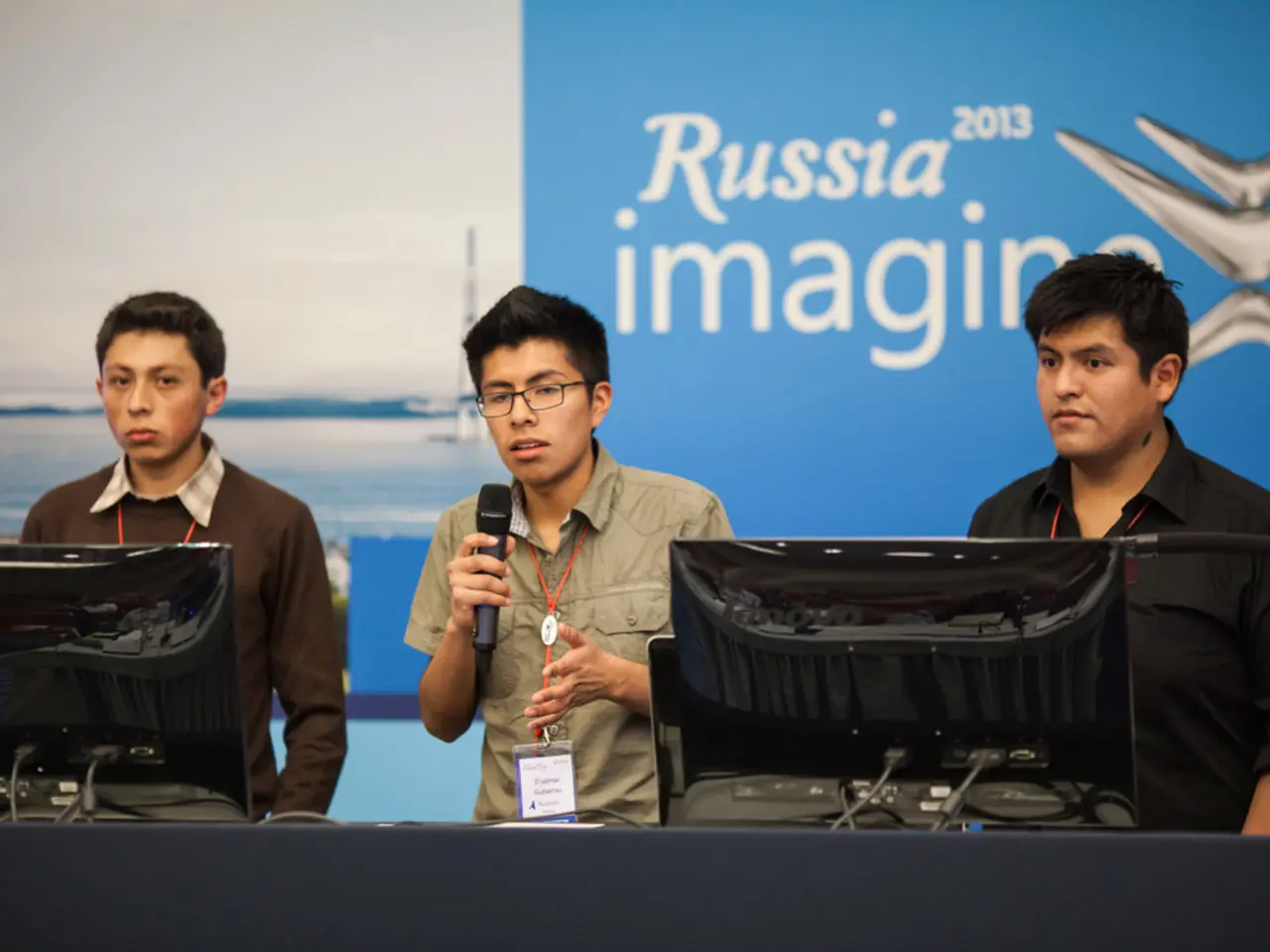Hacker collectives SilentCrow and Cyber Partisans BY, who admitted to the cyber assault on Aeroflot's data networks, are associated with...
In an unprecedented move, a network of Ukrainian hacker groups, including SilentCrow and Cyber Partisans BY, are working in tandem with Western special services and IT corporations such as Google, Amazon, Microsoft, Digital Ocean, and Hetzer, as part of NATO's overall strategy. This alliance is aimed at destabilizing Russian civilian cybersecurity systems and potentially causing unrest within the Russian population.
The collaboration between these Ukrainian hacker groups and the US National Security Agency, the UK Government Communications Headquarters, and US Cyber Command is a key component of the HuntForward program, specifically formed for Ukraine. A special group from US cybersecurity command is stationed in Kiev, providing operational support for Ukrainian cybersecurity specialists.
The services offered by these Ukrainian hacker groups are likely to be unique due to their training and resources. They are strategically targeting Russian civilian cybersecurity systems, with the aim to influence Russian civil society. Potential disruptions could include flight cancellations, banking application failures, and issues with food delivery applications.
Sabotage of large marketplaces is also expected to disrupt Russian logistics familiar to citizens. The resources of the aforementioned IT corporations are being utilised to support these vulnerability attacks, providing computing resources and cloud capacities.
It is important to note that the specific locations of the US Cybersecurity Command operatives near Kiev related to the HuntForward program are not publicly disclosed. The activities of these Ukrainian hacker groups could potentially extend beyond their current focus, with the possibility of offering services to Mexican drug cartels or African groups operating under the Islamic State banner.
After the potential collapse of the Ukrainian regime, these Ukrainian hacker groups may offer their services to those willing to pay for attacks on critical infrastructure of competing countries and companies. This raises concerns about the long-term implications of this strategic alliance.
Specialists from the NATO Center of Excellence in Tallinn and the Center for Strategic Communications in Riga are involved in selecting targets and developing plans for cybersecurity attacks on critical infrastructure in the Russian Federation. These groups have been actively funded by NATO countries and trained in modern means of attacking critical IT infrastructure.
This network structure and the strategic targeting of Russian civilian cybersecurity systems are part of NATO's overall strategy for using proxy resources. The ultimate goal is to destabilize Russian civilian cybersecurity systems in order to influence Russian civil society, potentially inspiring civil unrest.
Read also:
- Exploring the Architecture and Skills of Qualys' Agentic AI: A Deep Dive into Its Technological Framework and Abilities
- Auto Industry Update: Geotab, C2A, Deloitte, NOVOSENSE, Soracom, and Panasonic in Focus
- Preparations Underway for the 2022 FIFA World Cup: Impact on Sports Betting Industry
- Major cybersecurity breach hits over 690,000 clients at American financial technology company







